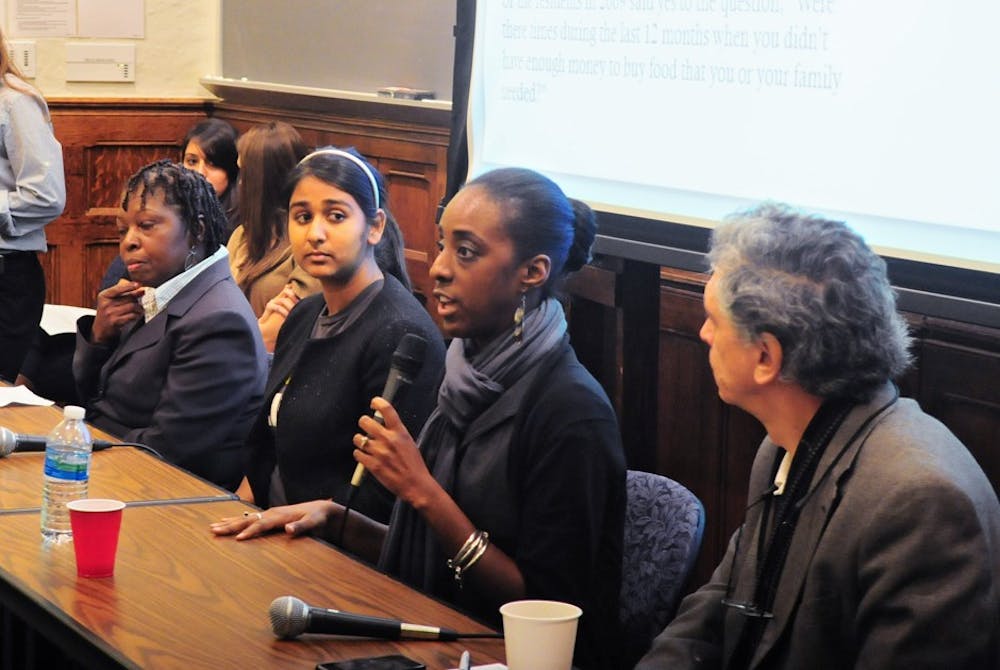While protesters continued the efforts of the Occupy Philadelphia movement at City Hall, a panel addressed approximately 60 students Thursday night in the ARCH building to discuss one of the leading sources of national debate — urban poverty.
The panel of four was organized by the Civic House Associates Coalition to provide a variety of insights into the urban crisis. Spurred by the questions of Penn students, the discussion ranged from the root causes of poverty to its potential solutions.
As Urban Studies professor Andrew Lamas explained, “In universities like this, we take on these deep philosophy questions — questions like, ‘Is life real?’ These are really removed from day-to-day life, but they are the stuff of Philosophy 101.” Lamas stressed the importance of real questions in tackling the urban crisis, as well as contact with poverty victims themselves, whom he considers to be the “invisible think-tanks of Philadelphia.”
West Philadelphia resident Angela Allen, who has been a client at LIFT — an organization that strives to fight poverty and promote economic stability for Philadelphia residents — for the past two and a half years, offered her own story of an improverished childhood. On the efforts of LIFT, an organization that boasts Penn student volunteers, Allen said, “It kind of reminds me of someone who had been considered dead, but then someone else comes in and gives them CPR … and then that person, who was almost dead, is alive again and excels.”
Lamas offered his professional views on the obstacles of poverty. “We normally define poverty by a ‘line’ that is based on income,” he explained. “We need to think of it in terms of wealth distinctions and net worth.” He used the example of Ivy League students to illustrate his ideas for possible solutions. Many Ivy League graduates, he explained, go on to work at co-owned firms, where they actually hold a portion of the business’s value. “Abolish the system that doesn’t allow people to claim ownership of where they work,” he said. “We do it — why can’t everybody else do it?”
The panel also featured a nonprofit social worker and a LIFT employee. As College senior Andrew Savino noted, “They all had a very unique perspective to offer. It’s not often you get this kind of group together in the same room.”
CHAC is combination of more than 50 student organizations that fosters community service opportunities for Penn students. CHAC sponsored the discussion as part of its “Think About It” series, which hosts an event each month to promote awareness and community involvement in the student body.



